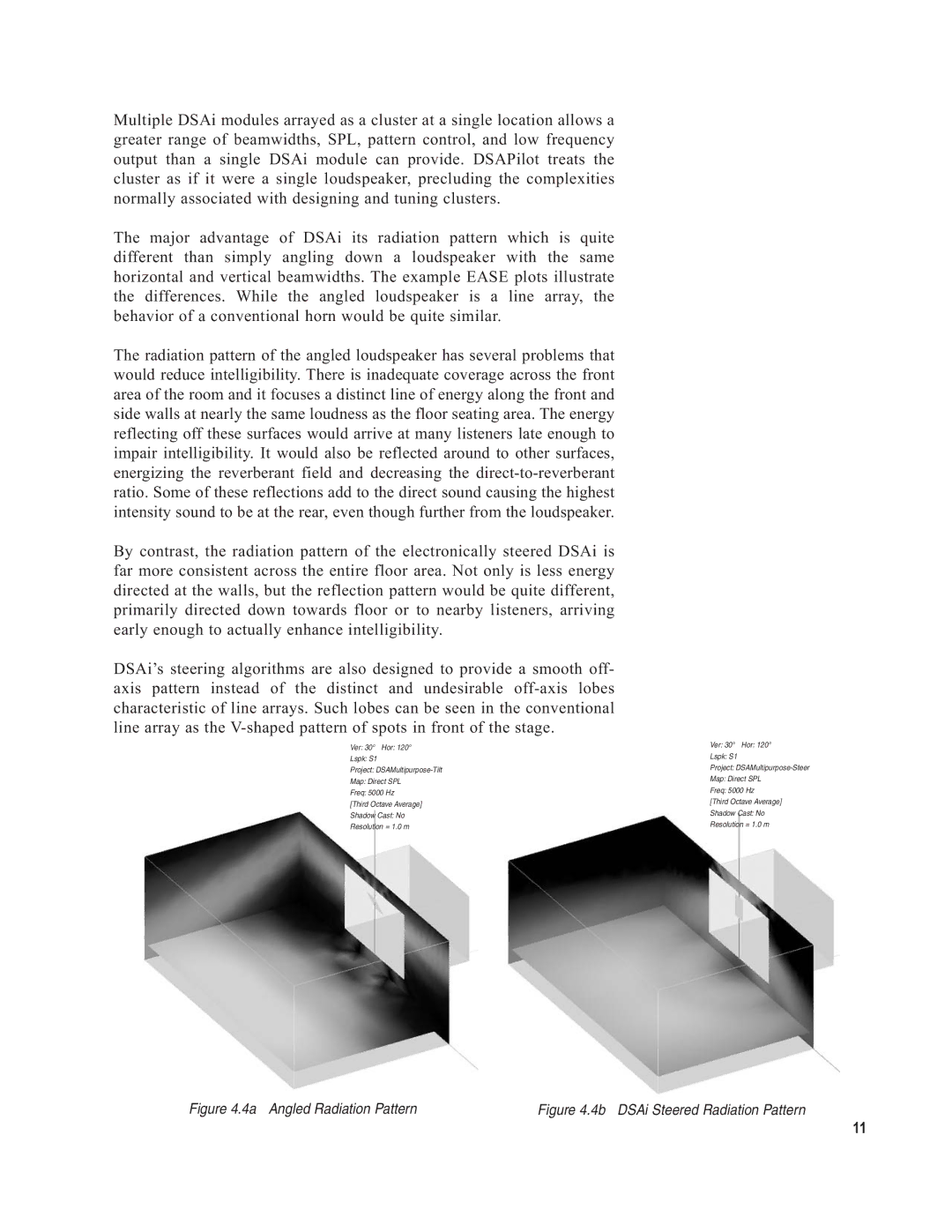
Multiple DSAi modules arrayed as a cluster at a single location allows a greater range of beamwidths, SPL, pattern control, and low frequency output than a single DSAi module can provide. DSAPilot treats the cluster as if it were a single loudspeaker, precluding the complexities normally associated with designing and tuning clusters.
The major advantage of DSAi its radiation pattern which is quite different than simply angling down a loudspeaker with the same horizontal and vertical beamwidths. The example EASE plots illustrate the differences. While the angled loudspeaker is a line array, the behavior of a conventional horn would be quite similar.
The radiation pattern of the angled loudspeaker has several problems that would reduce intelligibility. There is inadequate coverage across the front area of the room and it focuses a distinct line of energy along the front and side walls at nearly the same loudness as the floor seating area. The energy reflecting off these surfaces would arrive at many listeners late enough to impair intelligibility. It would also be reflected around to other surfaces, energizing the reverberant field and decreasing the
By contrast, the radiation pattern of the electronically steered DSAi is far more consistent across the entire floor area. Not only is less energy directed at the walls, but the reflection pattern would be quite different, primarily directed down towards floor or to nearby listeners, arriving early enough to actually enhance intelligibility.
DSAi’s steering algorithms are also designed to provide a smooth off- axis pattern instead of the distinct and undesirable
Ver: 30° Hor: 120°
Lspk: S1
Project:
Map: Direct SPL
Freq: 5000 Hz
[Third Octave Average]
Shadow Cast: No
Resolution = 1.0 m
Ver: 30° Hor: 120°
Lspk: S1
Project:
Map: Direct SPL
Freq: 5000 Hz
[Third Octave Average]
Shadow Cast: No
Resolution = 1.0 m
Figure 4.4a Angled Radiation Pattern | Figure 4.4b DSAi Steered Radiation Pattern |
11
